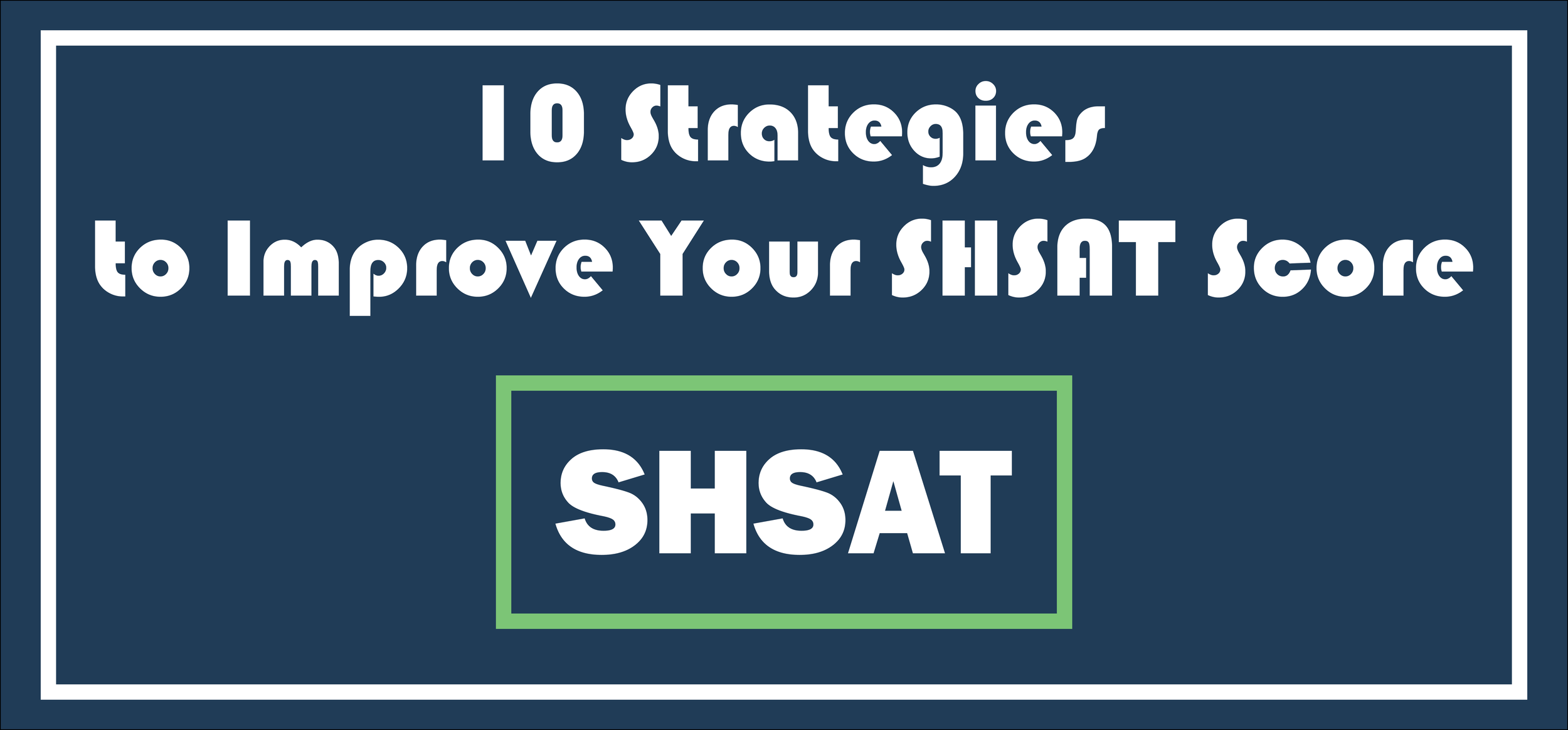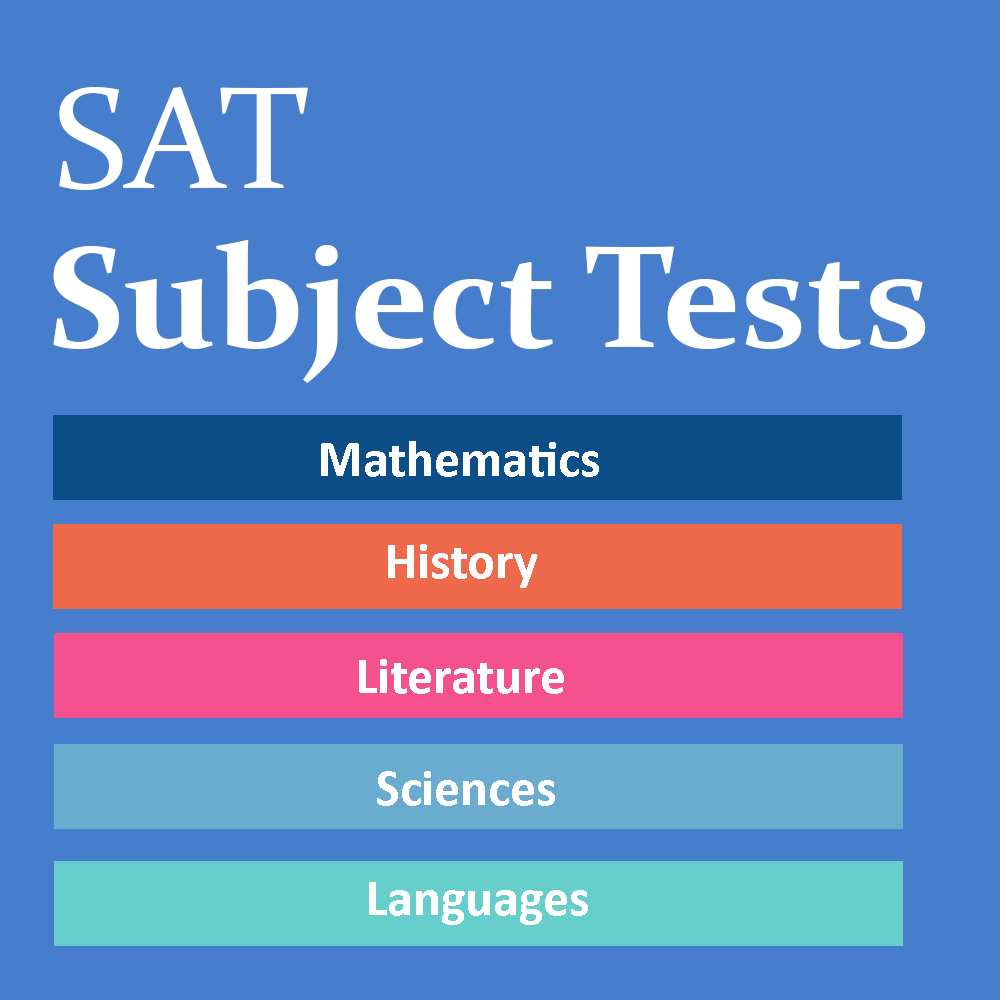The SHSAT is one of the hardest standardized tests you will have to take in your middle school career. Although it may seem daunting at first, with practice you can achieve a high score and get into your dream high school. The strategies listed below can help you tackle the SHSAT and come out on top.
Basic Strategies:
The first step to successfully study for the SHSAT is to familiarize yourself with its content, length, and structure. This way, on the day of the test, you won’t waste time figuring out the SHSAT structure, but rather getting the right answers. Like all standardized tests, the SHSAT repeats topics every year. If you’re familiar with the test, you’ll know what topics to study and no type of question can surprise you. The best way to familiarize yourself with the SHSAT is to take practice tests. This way you won’t get confused by the wording of questions while taking the actual test.
1. Practice Tests
The best way to improve your SHSAT score is through practice. When taking a practice test, you should recreate the testing conditions of the SHSAT. This means a quiet and distraction-free area. To recreate this type of setting, you should put away all electronics and sit at an empty desk in a quiet room. Make sure to time yourself. The SHSAT is three hours long. Although there aren’t any time restrictions for the sections on the SHSAT, you should split your time equally between the two sections. This means you should spend 90 minutes on the ELA section and 90 minutes on the math section. After taking the practice tests, you should grade yourself honestly and go over all the questions you got wrong carefully. Make sure you understand why you got each question wrong and how to correctly solve the problem in the future. By doing this, you can also find your weaknesses (ex. probability, verb tenses). Based on that, you can set up a study schedule.
You can find some practice tests in the back of SHSAT workbooks, like Kaplan, Barron’s, and Argo Prep. You can also find a number of practice tests online in the SHSAT handbook.
2. Study Schedules
Set aside time each day to study for the SHSAT. This time should be based on how much studying you need and should be at least an hour long. If you are unable to study an hour each day, try aiming for two hours every two days instead. These study sessions can include taking tests, doing practice problems, and learning/reviewing topics. You should spend most of your time on your weak areas, whether it be the ELA or math. As you get closer to the SHSAT test date, you should increase the amount of time you study. Allow yourself to review some of the topics the day before the actual test. However, do not study too much the day before the SHSAT. All the studying that you have done in the past should be enough.
3. Timing
The SHSAT itself is three hours long, and while you can take as long as you want for any section, it’s recommended that you use half your time for ELA and half your time for math. If you’re not finishing the test within the recommended times, figure out what topics/sections are taking the longest time and study those. Before your SHSAT test date, you should take two practice tests, one doing the ELA section first and the other doing the Math section first. Figure out which order works better for you. If you realize that you are better in one section than the other, try starting with the harder section first so you can approach it with a fresh mind.
Ways To Improve Your SHSAT Math Score:
If you’re having trouble with the math section of the SHSAT, here are some strategies on how to improve your math score:
1. Concepts
Learn all the SHSAT math concepts from a workbook or the internet. There are around 40 math concepts you need to know. You should try to learn at least one each day. Then, figure out which concepts you have the most difficulty with and focus on those. Generally, most people have trouble with probability, distance, permutations/combinations, and volume problems, so be sure to spend extra time on those. Take at least two days to learn and practice these concepts specifically.
A majority of SHSAT math questions are word problems that are based off a list of equations, so make sure you read each question carefully and know how to use the information you’re given. You should also make a study guide of all the equations you must know for the SHSAT and memorize them.
2. Question Difficulty
Based on the difficulty of the problem, you should approach it differently. Easy questions, which should take you the least amount of time, tend to try to trick you. Make sure to read these questions carefully! For questions with medium difficulty, you should learn shortcuts that make it easier and quicker to solve. If there are any questions that you find difficult to do, relearn that math concept and figure out any shortcuts that can help you.
Ways To Improve Your SHSAT ELA Score:
If you’re having trouble with the ELA section of the SHSAT, here are some strategies that can help you improve your score:
1. Read more nonfiction
Most of the SHSAT passages are informational nonfiction, which most people don’t read often. Reading articles from places like the New York Times can help you familiarize yourself with the genre and improve your vocabulary, reading comprehension, and grammar.
2. Annotate Passages
SHSAT passage-based questions consistently ask about main ideas, key ideas, major turning points, and shifts in tone/narrative. To effectively answer these questions, you should do quick annotations while reading the passages. Taking notes in the margins of passages and underlining important details can help you better understand the passage and makes it easier to find information when you are doing questions.
3. Grammar
The SHSAT grammar questions focus on basic grammar (punctuation, clauses, etc.), transition words, combining two sentences, and identifying irrelevant sentences. Learn the different types of punctuation and grammar concepts they have on the SHSAT from a workbook or online. Then, practice by doing practice problems from workbooks and online worksheets. Make sure to check your work and understand why you might have gotten a question wrong. Another way to practice spotting errors is to go back to your old writing assignments and revise them. While doing SHSAT grammar questions, you should also make sure you understand the main idea of each passage because it is necessary when answering questions about transition, relevancy, and placement.
The best way to study for the SHSAT is to figure out what methods and strategies work for you and continuously practice them. Practice makes perfect. With the right amount of practice, you can get well above the score you’re aiming for. If you’re still having trouble improving your SHSAT score, you should consider tutoring. A SHSAT tutor can help you implement the strategies mentioned above, work on your weak areas, and figure out strategies that work for you. Synergy Prep offers SHSAT tutoring, where you can take practice tests, receive a breakdown of your tests, and attend workshops focused on specific topics.











